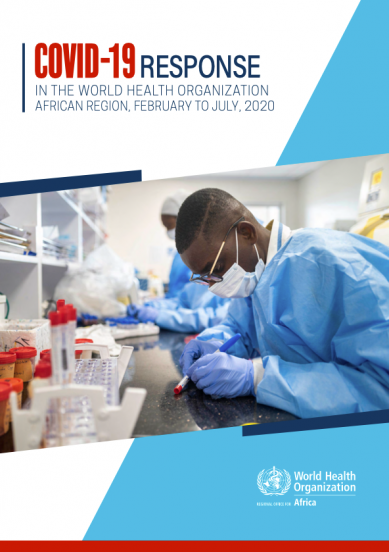
COVID-19 Response in the World Health Organization African Region, February to July, 2020
Even before the first confirmed case of COVID-19 in the WHO African Region was reported in Algeria on 25 February 2020, we at WHO were working with governments and partners to strengthen readiness and response capacities. This report details the progress made and key achievements in the first six months of the response as well as the priorities and challenges going forward.
Most African countries took swift action early on, and it is largely thanks to these efforts to limit gatherings and strengthen public health capacities, that cases and deaths in Africa have remained lower than in other parts of the world.
I would like to express my sincere appreciation to all the donors and partners who have supported WHO’s work in the African Region and contributed to the results shared in this report. The COVID-19 pandemic has highlighted the fact that no one is safe until we are all safe, and it has reaffirmed the importance of international solidarity.
As we publish this report on 1 November 2020, there are now more than 1 318 254 million reported cases of COVID-19 in the WHO African Region and 29 901 people have sadly lost their lives. In the past seven days there were 31 621 new cases and 406 new deaths.
This situation continues to require our urgent collective attention and action. Continued support is needed for countries to empower individuals to play their role and take preventive actions, to ensure continuity of essential services and strengthen health systems, and to facilitate social and economic recovery from this crisis. Accelerated action is also needed on research and development in the African Region, including strengthening regulatory and distribution planning capacity, to ensure that countries are ready once a safe and effective vaccine becomes available.
In these unprecedented and challenging times, we need to work together to leverage opportunities to build back better, to advance universal health coverage and to enhance equity in our societies. By working together with governments, partners and communities, we can save lives, promote health and serve the vulnerable in the fight against COVID-19 and beyond.


